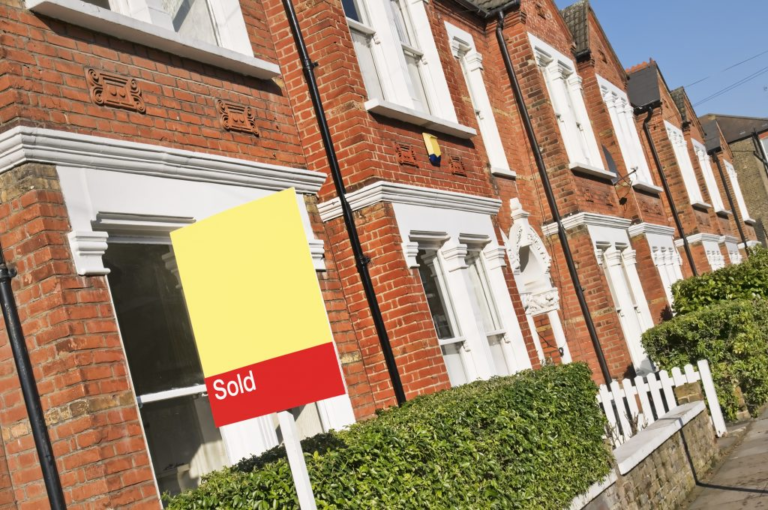Demand in the UK housing market is remaining at strong levels, while supply is still low. This is putting upwards pressure on house prices and highlights the importance of bringing forward more new-builds.
In the UK housing market, the number of properties for sale has decreased to its lowest level in more than six years, according to Zoopla. During the last year alone, one in 20 homes changed hands. This flurry of activity was driven by the stamp duty holiday and race for space.
Currently, the number of homes being put on the market is still not replenishing those that are sold. This had led to the most acute shortage of stock since 2015 when Zoopla first started tracking this. At the same time, there is an ongoing buyer frenzy.
Gráinne Gilmore, Zoopla’s head of research, says: “The post-pandemic ‘reassessment of home’, with households deciding to change how and where they live, has further to run, especially as office-based workers receive confirmation about flexible working, allowing more leeway to live further from the office.
“However, the lack of supply, especially for family houses, means the market will start to naturally slow during the rest of this year and into next year, as buyers hold on for more stock to become available before making a move.”
The mismatch in supply and demand is continuing to put upwards pressure on house prices. The average UK house price has increased by 6% in the past year to the end of July, according to Zoopla’s latest House Price Index. This has pushed the average property price to £234,000.
Regions where the affordability is less stretched are seeing the strongest house price growth. Wales, Northern Ireland and the north-west of England are leading the way with 9.4%, 9.0% and 7.9% increases respectively.
A similar pattern is being seen on a city level too. For example, Liverpool is home to an average house price of £136,721. And the city by the Merseyside is leading house price growth with a 9.4% rise in the past year. House prices in Manchester and Belfast have risen by 7.7% and 7.5% respectively over the same period. On the other side, London has only seen 2.5% growth.
Demand from potential buyers is continuing at elevated levels. The number of people looking to buy a property is 20.5% higher than the average for 2020.
There have been increased levels of activity among property investors and first-time buyers in particular. These buyers are considered net new demand with the vast majority having no property to sell. This is further putting a strain on the supply and demand gap.
With the undersupply of housing, the UK housebuilding sector can play an important role. First-time buyers can purchase new-build properties through the Help to Buy scheme. And more investors are seeing the benefits of investing in new-builds, especially those within build-to-rent developments.
Supply is expected to remain low well into the next year. This will likely lead to a slowdown in the UK housing market and house prices could ease back. Once the impact of the stamp duty holiday wanes and other government stimulus measures have been withdrawn, housing stock levels will start to recover gradually.
Gráinne Gilmore comments: “As we move into 2022, there will be a strong start to the year in line with seasonal trends, but after that, a return to more usual levels of activity among first-time buyers, the effect of the ending of the stamp duty holiday, and some buyers waiting for more stock to become available will result in a slow repairing of stock levels through the first half.”
The Bank of England base rate rise could lead lenders to pass on higher mortgage rates as well as savings rates. Whether this will have
Technological advances in recent years have been phenomenal, and ‘proptech’ certainly hasn’t been left behind. Investors, buyers and even tenants are using it more than
Next month, 11 new landlord licensing schemes will come into effect across the country. Landlords who don’t comply with the new requirements could face hefty
Murmurs of a slowdown in the property market are yet to materialise as UK house prices climb at their fastest annual rate since June 2007.
Things have been moving quickly in the UK buy-to-let property market, with more long-term renters pushing up the figures as the sector swells. New research
There are always new trends ebbing and flowing to affect the property market. But people’s home-working patterns and how they impact housing needs could be
© Copyright Direct Marketplace Limited 2022. All rights reserved. Direct Marketplace Limited t/a BuyAssociation is a registered company in England and Wales (Company #10568641), with its registered office at Ground Floor, Amazon House, 3 Brazil Street, Manchester, M1 3PJ. Direct Marketplace LTD is registered with the Office of the Information Commissioner (Reg #ZA253886). Direct Marketplace Limited is a member of the Property Redress Scheme (Member #PRS009536) and adheres to its Code of Practice.
+44 (0) 333 123 0320
Open 9am-6pm GMT
Ground Floor
Amazon House
3 Brazil Street
Manchester
M1 3PJ
+852 9865 4446
Open 9am-6pm HKT
21st Floor, CMA Building
64 Connaught Road
Central, Hong Kong
We are using cookies to give you the best experience on our website. View cookie policy here or view privacy policy here.
You can find out more about which cookies we are using or switch them off in settings.
Speak to our UK property experts today:
Open from 9am-6pm GMT
Open from 9am-6pm HKT
Stamp Duty:
.
Unlock members only investment opportunities and full development details. Join now – it’s free, quick and easy.
Not a member? Sign up for free
By submitting your details via this online form you agree to be contacted via email/phone/SMS by Direct Marketplace Ltd t/a BuyAssociation in relation to property investment and property developments . We do not share your personal details with third parties. To view our full Privacy Policy click here.
This website uses cookies so that we can provide you with the best user experience possible. Cookie information is stored in your browser and performs functions such as recognising you when you return to our website and helping our team to understand which sections of the website you find most interesting and useful.
Strictly Necessary Cookie should be enabled at all times so that we can save your preferences for cookie settings.
If you disable this cookie, we will not be able to save your preferences. This means that every time you visit this website you will need to enable or disable cookies again.






